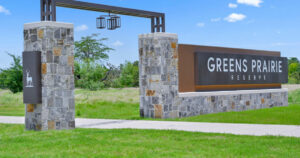Propositions on the Ballot Spark Debate in Brazos County
Brazos County, Texas, is buzzing with activity as early voters weigh in on two important propositions that could reshape the way livestock is managed in the area. Residents are heading to the polls to decide on propositions A and B, which are all about livestock law and could significantly impact the rural community and its farmers.
Current Open-Range Status
As it stands, Brazos County operates under an open-range system, meaning that farmers and ranchers are not required to fence in their animals. Professor Tiffany Dowell Lashmet, an esteemed agricultural law extension specialist from Texas A&M, explains the implications of this status: “They are not liable for damage that the animal causes or if they get hit by a vehicle.” This could all change if the new propositions are approved by voters.
What Do the Propositions Propose?
Proposition A would mandate that cattle be kept in fenced pastures, while Proposition B extends this requirement to all other types of livestock. If these propositions pass, livestock owners could face liability if their animals escape and cause harm or damage to property. The thought of adding such responsibilities has stirred quite a conversation among community members.
The Brazos County Sheriff’s Office (BCSO) reports frequent calls regarding roaming livestock, with Deputy Sergeant Brian Bachmeyer stating, “It can be one cow, a bull, a horse, sheep, goat, anything out on the roadway or in someone’s yard.” The concern for public safety is valid, but the new laws could bring about significant changes for livestock owners in the region.
Voices from the Community
One local rancher, Scott Catalena, who comes from a long line of ranchers in Bryan, voices his concerns about the potential consequences of these propositions. He argues, “We need to make sure we don’t forget where we come from.” Catalena believes that imposing these new regulations may add unnecessary burden to local producers, a cost that could eventually be passed on to consumers in the form of even higher prices at grocery stores and restaurants.
“We all don’t like the beef prices that we see in the grocery store and at restaurants now,” Catalena warns. “It’s this sort of thing that just keeps driving stuff like that up.” His perspective is a reflection of the worries many in the agricultural community feel about maintaining the traditional practices that have long characterized Texas ranching.
Looking Ahead
The clock is ticking, and if either proposition passes, it could take effect roughly a month after election day. Voters are urged to think carefully about how these laws might affect their lifestyles, livelihoods, and the larger agricultural landscape in Brazos County.
Interestingly, KBTX reached out to other counties in the Brazos Valley regarding their stock laws. About half of them, including Robertson and Burleson counties, are currently open range, while counties like Grimes and Madison have adopted closed-range stock laws.
Stay Informed
As the election draws near, it’s important for residents to educate themselves on these propositions and what they entail. Keeping informed will help voters make the best decision for their community and way of life. For those looking for more information, including polling locations, candidate details, and sample ballots, several resources are available to guide them through the local election process.
The debates surrounding propositions A and B are already shaping conversations among locals, proving once again just how interconnected community decisions are to everyday life in Brazos County.








